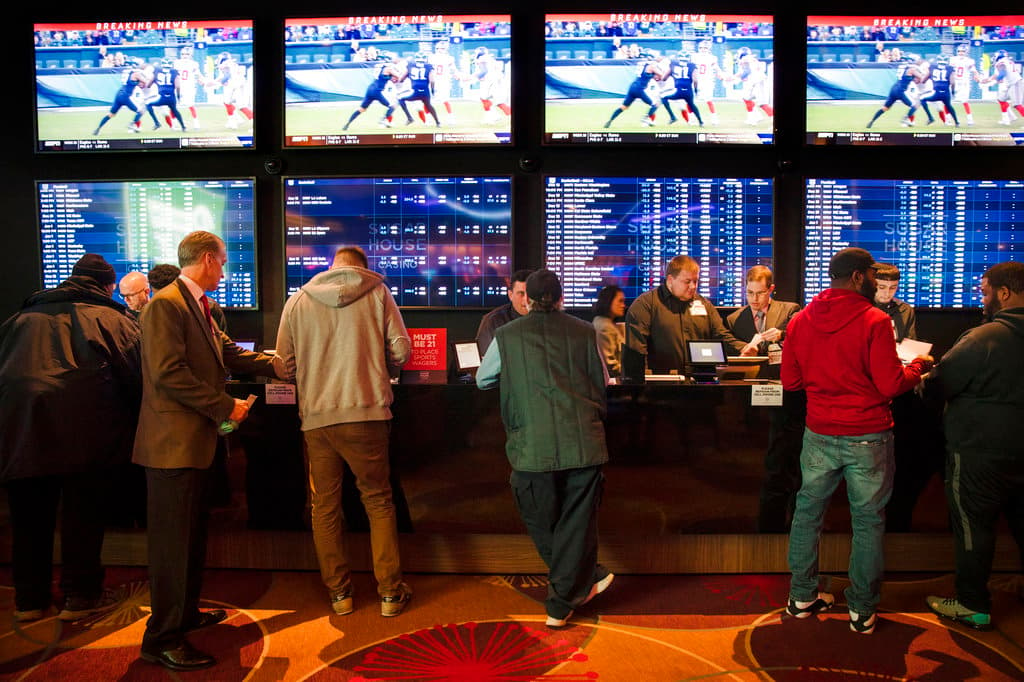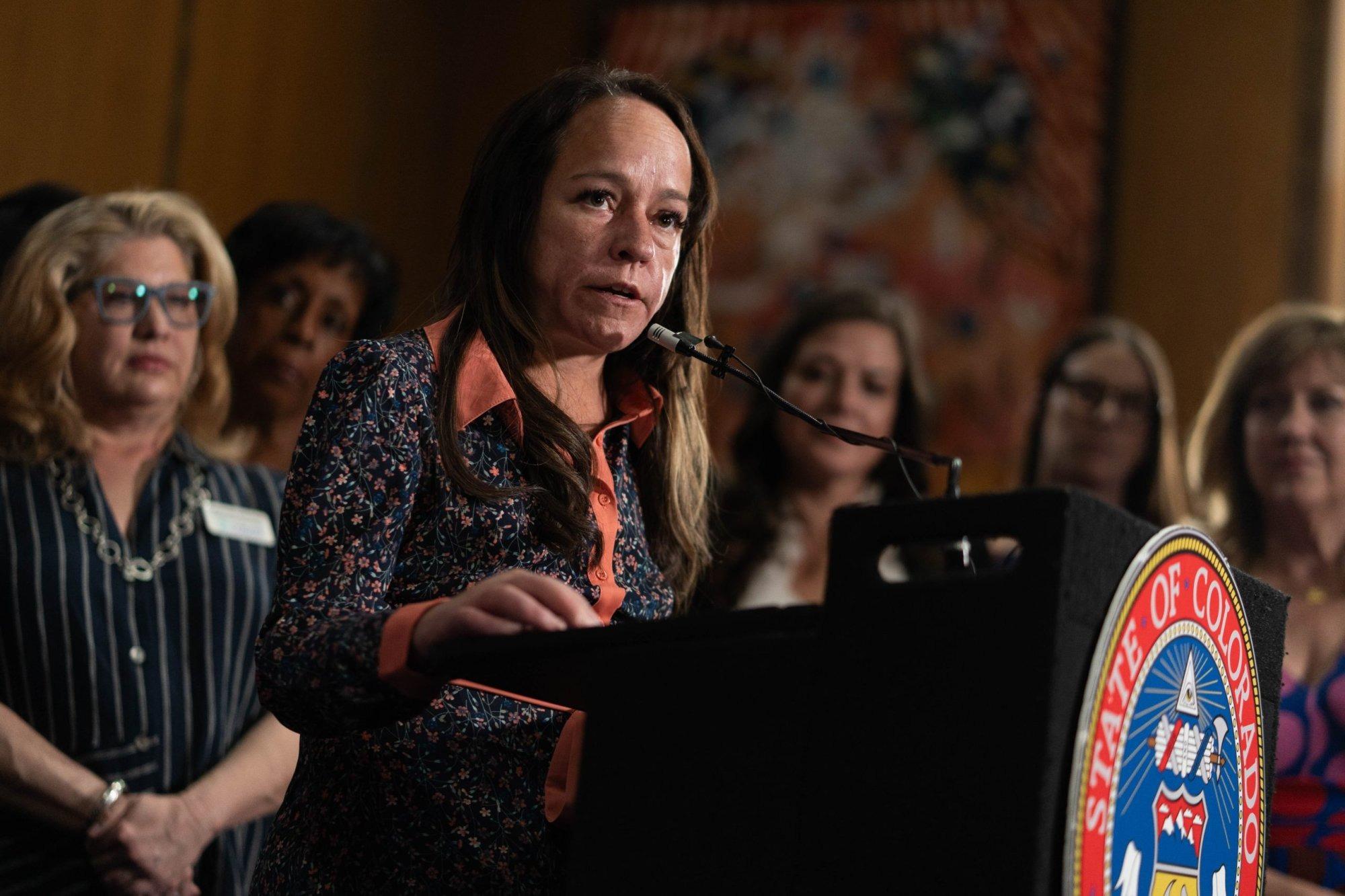
Updated at 12:36 p.m. on Tuesday, Oct. 28, 2025
A federal judge has dismissed a lawsuit filed by the Southern Ute and Ute Mountain Ute Tribes that claimed the state of Colorado was violating Tribal gaming rights in how it managed online sports wagers.
The decision ends a dispute between the state and Colorado’s two recognized Tribal nations over a matter that brings in millions of tax dollars each month.
The ruling from U.S. District Court Judge Gordon Gallagher focused on a key dispute raised by the lawsuit: whether an online bet placed off Tribal lands would be subject to Indian Gaming rules if that bet were processed by the Tribes.
“This Court finds that the gaming occurs where the bettor is located — in this context, the location of the bettor is the only determining factor for whether gaming is on Indian land,” Gallagher wrote in a decision published today. “If the bettor is on Indian land, the gaming activity is on Indian land and (the Indian Gaming Regulatory Act) applies. If the bettor is off Indian land, e.g., in Denver, the bettor is not engaged in gaming on Indian land and IGRA does not apply.”
A spokesperson from Gov. Jared Polis’ office said in a statement the state was pleased with the ruling.
“We deeply respect the government-to-government relationship the state has with the Ute Mountain Ute and Southern Ute Indian Tribes. We are glad that the court ruled in the state’s favor to ensure Colorado can continue to manage sports betting in a way that works best for Coloradans and our state and continue funding important water projects around the state. We are dedicated to working together with the Tribes on gaming matters, and we look forward to ongoing conversations with the Ute Mountain Ute and Southern Ute Indian Tribes on this important issue,” the statement reads.
In a statement, the Southern Ute Tribe said they would be examining other options.
“The Tribe respects Judge Gallagher and appreciates the time he has given this issue. We believe a different result is mandated by federal law and will be evaluating how to move forward in the coming weeks,” the statement said.
The Tribe went on to point out that the disagreement with the state “represents one of the lowest points in State-Tribal relations in recent history,” noting an ongoing issue with state officials over managing a massive gasoline spill on Tribal land.
The Southern Ute Tribe first sued Polis and the Colorado Division of Gaming in July 2024, with the Ute Mountain Ute Tribe joining the suit shortly after. The Tribes argued that they were within their rights under federal gaming law to form an online sports book following the passage of Proposition DD in 2019, which legalized online sports betting.
The Tribes argued they ran into problems with the state because the state asked that they align with new state laws for bets placed outside of reservation lands. That includes paying the 10% tax on sports wagers, which the state uses to fund water projects. This prompted a debate as to what constituted a bet placed on Tribal lands. Elsewhere in the country, Tribes have argued for a “spoke-and-hub” understanding that suggests that all online wagers constituted a wager on Tribal land because of where the bet was being accepted.
Gallagher noted in his opinion how technology had complicated the interpretation of the nearly 40-year-old law covering Tribal gaming.
“While not without its definitional hurdles, a retrospective look back to when IGRA was enacted in 1988 shows a simpler technological time when both the gambler and the game, e.g., a roulette wheel, were likely in the same place at the same time,” Gallagher wrote. “If the gambler and roulette wheel were on Indian land, IGRA applied. However, in 2025, a gambler can be in Denver and the electronic game processed through a computer server on Southern Ute Indian Tribe land or Ute Mountain Ute Tribe land. Where then does the gaming occur?”
The state has argued that the Tribes did not have grounds to sue the state, given that the state is immune from the suit under the Eleventh Amendment and that, independent of that, the Tribe’s interpretation of the law was incorrect. The state noted their efforts to regulate the Tribe’s gaming activities only extended to bets placed outside of Tribal territory, and that the Tribe could continue operations within their lands as they always had.
“If Colorado were attempting to regulate the Tribes’ acceptance of wagers placed within the bounds of their respective reservations, it would be overstepping into the Tribes’ jurisdiction under IGRA. But, Colorado is only seeking to regulate the acceptance of wagers placed off the reservations and thus occurring off Indian land,” Gallagher ruled.
Sports betting has accounted for millions of dollars in tax revenue to the state of Colorado. In the last fiscal year, more than $6 billion in wagers were placed in Colorado, netting nearly $37 million in tax revenue, according to the state Department of Revenue. That money is directed to the state’s water plan grant program. Online betting outpaces retail betting. In August of this year, the state raised more than $3 million in revenue from $38 million in online bets. For retail betting, the state brought in almost $40,000 from less than $500,000 in wagers.
Editor's note: This story has been updated to include statements from the Governor's Office and the Southern Ute Tribe.









